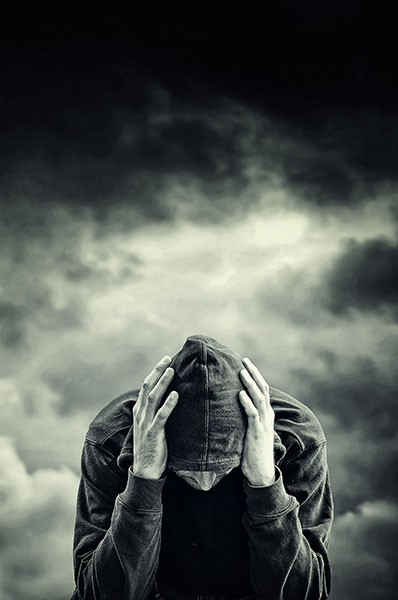Benzodiazepine Addiction & Abuse
Benzodiazepines, also known as ‘benzos’, are a class of psychoactive drugs used as a short-term treatment for anxiety and insomnia. Their use is in decline throughout the UK, because of their abuse potential and risk of dependency. However, benzodiazepines such as Xanax can be purchased illegally online, resulting in a new wave of benzodiazepine dependency.
Benzodiazepine addiction stops you from living a healthy and fulfilling life but it doesn’t have to stop you from seeking the treatment you need.
In our guide to benzodiazepine addiction and abuse, we explore what an addiction to benzodiazepines is, the signs and symptoms and the dangers of chronic benzodiazepine use, so that you can make an informed decision on what steps to take next.
- What is Benzodiazepine Addiction?
- Benzodiazepine Abuse
- Commonly Abused Benzodiazepines
- How Benzodiazepine Addiction Develops
- Signs & Symptoms of Benzodiazepine
- The Dangers of Benzodiazepine Addiction
- Benzodiazepine Use During Pregnancy
- Benzodiazepine Addiction and Employment
- Getting Help for Benzodiazepine Addiction
What is Benzodiazepine Addiction?
Benzodiazepines are a category of prescription sedative drugs. It is most commonly prescribed for panic disorders, insomnia, and psychiatric conditions. Taking benzodiazepines outside of its prescribed or intended use is a sign of drug abuse. Owing to the calming effect of benzodiazepines and its fast acting properties, there is a high risk of sedative abuse and addiction. Benzodiazepine addiction is an inability to quit using the drug despite its negative consequences. Addiction is characterized by the following signs:
- The drug is taken in increasing doses compared to the initial prescription
- When the drug is not used it causes withdrawal symptoms
- Tolerance develops as larger doses of the drug are consumed to achieve the same effect
- Time is spent obtaining the drug legally and illegally (black market)
- Personal and professional life is disrupted because of the effects of the drug or attempts to find it.

Benzodiazepine Abuse
Benzodiazepine addiction is an inability to quit or reduce the amount of sedative used. Benzodiazepine abuse is defined as the use of a drug other than the way it was prescribed, or through recreational use. An example of sedative abuse would be increasing the dosage or crushing pills and snorting or injecting rather than taking it orally. For some this is an occasional event that happens infrequently, for others, this becomes a daily routine. The line between abuse and addiction can be difficult to define, however, if you or someone you love is abusing benzodiazepines daily and is unable to stop, this could be a sign of benzodiazepine addiction and dependence.
To understand the nature of abuse vs. addiction, drug classification can help you determine where on the legal spectrum unregulated substance use falls.
In the UK, drugs are classified according to the Misuse of Drugs Act (MDA). Substances including cocaine, LSD, methadone, MDM, and methamphetamine are Class A Drugs. Amphetamines, codeine, barbiturates, codeine, and synthetic cannabis are Class B Drugs. Benzodiazepines fall into the Class C Drug category along with anabolic steroids, and minor tranquilisers.
It is worth noting that despite being classified as a class C drug in the UK, benzodiazepine misuse can be very damaging to the body and mind. Furthermore, where individuals have been using benzodiazepines for some time, withdrawal from benzodiazepines can be difficult.
Commonly Abused Prescription Drugs
Benzodiazepines consist of a category of mild tranquilisers. Owing to its calming effects on the mind and body, it is one of the most commonly abused drugs in the UK and around the world. Familiar types of benzodiazepines include Valium and Xanax. Let’s take a closer look at the most common benzodiazepine addictions.
Valium
Valium is also known as diazepam and is one of the most addictive substances in the category of benzodiazepines. Because it has a longer effect compared to other benzodiazepines, addictions develop relatively quickly. When Valium’s dosage is increased or used in a way that is not prescribed by a doctor, substance abuse can soon become an addiction.
Valium that is used for a period of more than 4 weeks increases the likelihood of addiction. Valium abuse starts with taking increasing quantities of the drug as the brain is unable to function independently of the substance. The signs of a Valium addiction include:
- An inability to stop using or taking high doses outside of a prescription
- A negative impact on health
- Withdrawal symptoms
- Loss of interest in relationships and activities.
Xanax
Most are familiar with the calming effects of Xanax. It is also one of the strongest benzodiazepines that treat psychiatric conditions such as panic disorders, severe anxiety, and insomnia.
Xanax addiction develops from substance tolerance. Individuals will take larger amounts of the drug to achieve the desired effect, increasing the risk of addiction. The signs of a Xanax addiction include:
- Higher doses of the drug
- Withdrawal symptoms when it is not used
- Tolerance
- Loss of interest in previously pleasurable activities
- Risky behaviour.
How Benzodiazepine Addiction Develops
There are many reasons for developing an addiction to sedatives. Factors such as repeat exposure, past trauma, mental health conditions and family history can contribute to drug addiction. If you are struggling with benzodiazepine addiction, we explore the various factors behind a benzodiazepine dependence.
Repeat Exposure
Drug addiction starts with exposure. Some people may take a drug recreationally and use it more frequently in social situations. In the case of benzodiazepines, a repeat or chronic prescription of only a few weeks can create tolerance and you find yourself having to increase the dosage to achieve the same effect or to feel normal (Mayo Clinic).
Repeat exposure is defined as the frequency of use or how often you are exposed to the drug. For example, if you start suffering from insomnia and your doctor prescribes a course of sedatives to help you sleep, your body starts to depend on the drug. Benzodiazepines act on the central nervous system and reducing the intake or stopping the drug completely could lead to withdrawal symptoms such as headaches, nausea, and tremors.
Trauma & Mental Illness
When the fear and the emotions surrounding a traumatic event go unresolved it can create disruptions in mental, behavioural, and even physical health. Mental health conditions such as PTSD, depression, and anxiety can develop over time. While there are many complexities surrounding the connection between trauma and addiction, it is the struggle to cope with symptoms and the challenge of reliving the trauma that leaves many to turn to drugs and alcohol. Most PTSD or anxiety sufferers are prescribed mild tranquilisers because it creates a calming effect on the mind and body. If you cannot sleep at night because of flashbacks and elevated stress, you could become dependent on sedatives. This could increase the risk of prolonged use and the body developing a tolerance to the drug.

A Family History of Addiction
Researchers have determined the link between genetics and family drug use in twin studies. Research reveals that up to 60% of genetics can account for drug addiction (Psychology Today). However, a large part of family history and addiction cannot be considered without looking at environmental factors. While there is no single gene responsible for addiction, a combination of genetics and family environment experiences with substances can contribute drug dependence.
Enter your phone number below and one of our qualified addiction specialists will get in touch to discuss your options.

Signs & Symptoms of Prescription Drug Addiction
To determine whether you or someone you love is battling benzodiazepine dependence, it is important to learn the following signs and symptoms of addiction:
- An inability to stop using the substance and the experience of withdrawal symptoms when the drug is not taken or dosage reduced
- Lack of interest in previously enjoyable activities, impaired relationships, and poor or non-existent work/life balance.
- Drowsiness
- Poor motor skills and coordination
- Cognitive problems including memory loss and confusion with long term use
- Increasing the amount of or frequency of using a drug
- Engaging in risky behaviour
The Dangers of Benzodiazepine Addiction
Both prescription and illicit drugs influence the nervous system when consumed; however, the ongoing use of substances such as benzodiazepines can have a limiting impact on mental and physical health. Benzodiazepines are used in the treatment of anxiety and sleep disorders. When used only for a short period, it can cause cognitive impairment including the risk of a vehicle accident owing to drowsiness and poor motor coordination.
Benzodiazepine addiction also creates an uncomfortable withdrawal syndrome that can last for months (AAFP).
Benzodiazepine Use During Pregnancy
Drug use in pregnancy can lead to a multitude of complications. Different types of drugs have different effects on a developing foetus and the health of moms. Certain substances can hinder foetal growth and cause deformities while others can have effects later in life such as deficits in learning and information processing.
If we look at Benzodiazepines and their use in pregnancy, many infants have been born with deformities of the heart, clefts, and physical malformations (NIH). Benzodiazepines including Valium, Klonopin, Xanax, and Ativan have been shown to cause sedation in newborns, poor muscle mass, and respiratory issues. Some infants also experience withdrawal from sedatives upon birth.

Benzodiazepine Addiction & Employment
Many individuals have managed to attend work and continue to provide for their households in the initial stages of addiction.
With the progression of addiction to benzodiazepines progresses the symptoms of addiction become apparent and individuals are unable to manage work demands, punctuality, and keep up with personal and professional relationships.
Sedatives cause constant drowsiness and impaired coordination making it impossible to meet professional obligations, Financial losses are suffered owing to constant absent days or the occurrence of job loss. The cost of purchasing drugs on the black market is also high, further impacting financial health.

Getting Help for Benzodiazepine Addiction
Getting help for benzodiazepine addiction is a powerful step towards recovery. Fortunately, individuals struggling with benzodiazepine addictions have options for treatment including inpatient services through residential rehab or outpatient services.
Let’s take a closer look at the options for treating substance dependence including addiction to the benzodiazepine class of drugs:
Free outpatient services are offered through organisations such as the NHS. For admittance into a free rehab programme, individuals must be referred by their doctor and will be placed on a waiting list. In exceptional circumstances, the NHS may provide a medically-assisted detox for benzodiazepine dependence.
Private rehabilitation including a medically assisted drug detox is a costly treatment plan but offers the benefits of round-the-clock assistance and removal from environmental triggers for the duration of the programme.
Private addiction counselling and support groups exist for those struggling with drug addiction. Such groups include Narcotics Anonymous (NA) and Cocaine Anonymous (CA).
If you have questions about seeking treatment or wish to learn more about the options available to you, please feel free to call us. We are here to help you find the appropriate treatment and recovery programme to suit your needs.
